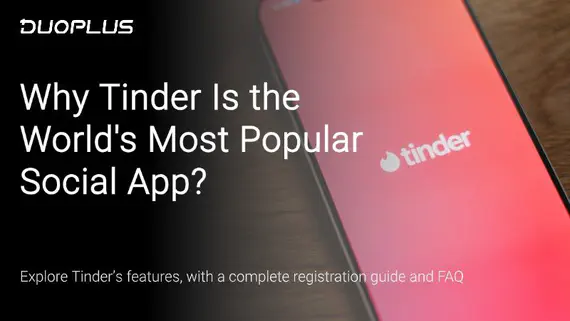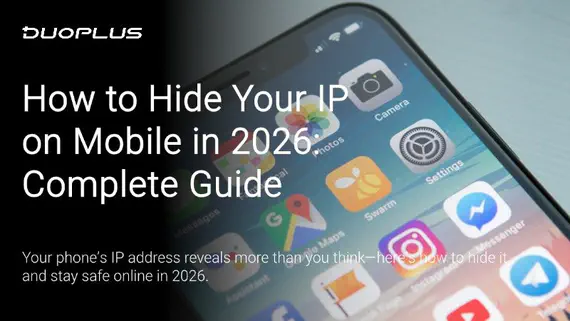
Why Tinder Is the World's Most Popular Social App: Includes Registration Guide and Growth Tips
In the ever-evolving landscape of global social apps, Tinder has carved out a significant niche and is recognized as one …
TikTok is set to begin labeling content that has been created using artificial intelligence, especially when it is uploaded from external platforms, to combat the spread of misinformation.
"AI presents unbelievable creative opportunities, yet can also mislead or confuse viewers if they are unaware that the content was generated by AI," the company stated in a press release on Thursday. "Labeling provides clear context, which is why we mark AIGC created with TikTok AI effects, and have required creators to mark realistic AIGC for more than a year."
This change in TikTok's policy represents a wider effort within the tech industry to implement more safeguards around the use of AI. In February, Meta announced it was collaborating with industry partners to develop technical standards to more easily identify AI-generated images, videos, and audios. Users on Facebook and Instagram will see labels on these AI-generated images.
Google also announced last year that AI labels would soon appear on YouTube and its other platforms.
The push for digital watermarking and labeling of AI-generated content was also featured in an executive order signed by U.S. President Joe Biden last October.
TikTok is collaborating with the Coalition for Content Provenance and Authenticity and will utilize their Content Credentials technology.
The company explained that this technology could attach metadata to content, enabling it to instantly recognize and label AI-generated content. TikTok started deploying this technology on Thursday for images and videos, and it will soon be applied to audio-only content.
In the upcoming months, Content Credentials will be attached to submissions on TikTok, and will remain with the content when downloaded. This will aid in identifying AI-generated material made on TikTok and assist in educating people about when, where, and how the content was produced or edited. Other platforms adopting Content Credentials will be able to automatically label it.
"Using Content Credentials as a method to identify and directly communicate synthetic media to audiences is a significant step towards AI transparency, even more so than traditional watermarking methods," Claire Leibowicz, head of the AI and Media Integrity Program at the Partnership on AI, stated in a release. "We also need to better understand how users respond to these labels and hope that TikTok will report on the feedback so that we can better comprehend how the public navigates an increasingly AI-augmented world."
TikTok noted that it is the first video-sharing platform to implement the credentials in practice and will join the Adobe-led Content Authenticity Initiative to promote the adoption of these credentials within the industry.
"TikTok is the first social media platform to support Content Credentials, and with over 170 million users in the United States alone, their platform and their vast community of creators and users are an essential part of that chain of trust needed to increase transparency online," Dana Rao, Adobe’s Executive Vice President, General Counsel, and Chief Trust Officer, said in a blog post.
Previously, TikTok's policy was to encourage users to label content that has been generated or significantly edited by AI. It also requires users to label all AI-generated content that contains realistic images, audio, and video.
"Our users and our creators are so excited about AI and what it can do for their creativity and their ability to connect with audiences," Adam Presser, TikTok’s Head of Operations & Trust and Safety, told ABC News. "And at the same time, we want to ensure that people have the ability to understand what is fact and what is fiction."
The announcement was initially made on ABC’s "Good Morning America" on Thursday.
This move by TikTok comes just two days after TikTok and its Chinese parent company, ByteDance, filed a lawsuit challenging a new American law that would ban the video-sharing app in the U.S. unless it is sold to an approved buyer, claiming it unfairly targets the platform and is an unprecedented attack on free speech.
The lawsuit marks the latest turn in what is shaping up to be a prolonged legal battle over TikTok’s future in the United States — a battle that could ultimately reach the Supreme Court. If TikTok loses, the company says it would be forced to shut down next year.
DuoPlus Cloud Phone
Protect your multiple accounts from being

In the ever-evolving landscape of global social apps, Tinder has carved out a significant niche and is recognized as one …

In today's world of high mobility and internet ubiquity, mobile devices have become our main gateway to various …
No need to purchase multiple real phones.
With DuoPlus, one person can operate numerous cloud phones and social media accounts from a single computer, driving traffic and boosting sales for you.
